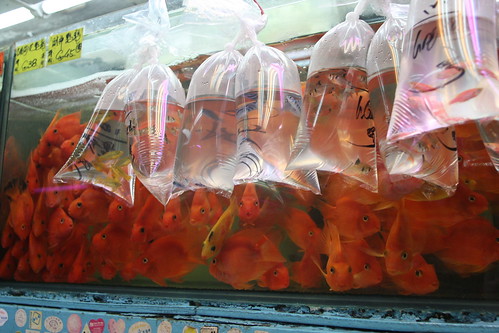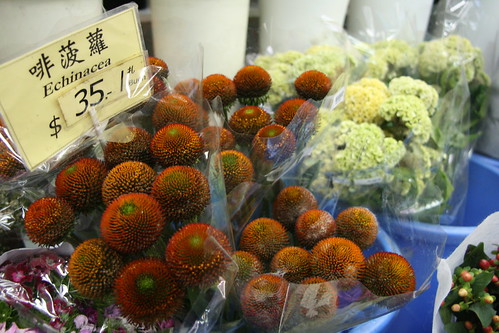I want to be a
hippy. Isaac does not. So he
didn’t much care for Pi Mai Lao (Lao New Year’s),
when the Lao wish each other well by dousing one another with buckets of water and handfuls of flour for five or six days in a row; for him, that was five or six days he had to use his sun umbrella as a shield and carefully seal his daily essentials—wallet, passport, cell phone—in multiple plastic bags.
Eventually, I also tired of the hourly soaking. But on the first official day of Pi Mai, when we crossed the Mekong to watch the people building sand stupas and I found myself soggy and barefoot, my feet sinking into thick mud, teenagers smearing the soot scraped off the bottom of cooking pots onto my cheeks, I had a revelation. “I can’t go to Korea and earn money!” I thought to myself. “I need to stay here and be the hippy I’ve always wanted to be.”
Perhaps my vision was encouraged by the fact that the day before, I had met my first Lao hippy. Like many hippies, he comes from a family with a good deal of money, and is slowly transforming one of their properties into a gallery/performance space; Isaac and I were walking past on our way to our guesthouse when he stopped and invited us up to the rooftop, where, on a couple of different occasions, we met a Welsh painter and a Chinese yoga instructor and an experienced French expat who explained how easy it will be for us to buy fake work visas and live in Laos forever.
Not surprisingly, our hippy has long hair and a green thumb and self-proclaimed aversion to materialism and bathing, which has provoked some of his neighbors to nickname him “smells-like-turtle-shit-armpits”. The fact that he slathers himself in self-tanning cream in a land of whitening beauty products also prompts them to snicker that he looks older than his seventy-year old father.
But less predictably, he speaks Lao, Vietnamese, Thai, French and English fluently; can credibly impersonate Naomi Campbell and a ladyboy in his one-man walk-off; and has at various points in his life taught Braille, been stalked by the paparazzi while dating a Vietnamese pop singer, and broken off his arranged marriage a week before it was to be consummated. As Isaac put it, “That man has a lot of flavor.”
He always apologizes before mentioning something crude, and professes to hate talking about sex. But he does both readily, and to our delight, he revealed how filthy Lao people can be in their own language. That afternoon I’d seen him gambling with the owner of my guesthouse, and so I asked them if they’d grown up together. “Oh yeah. I joke with her that I knew her when her feet were as big as a snail, and now her snail is as big as her feet” which makes sense after he explained that 1) Lao snails are relatively big and 2) snail is slang for “pussy, and I don’t mean Mt. Phousi, but the real punani.”
We asked for more examples, and he told us that that morning when someone was tailgating him, he turned around and shouted “Why is this great big truck trying to crawl into my little tiny asshole?!" Lest we thought only hippies spoke thus, he had plenty of evidence about what people had to say about parts of his body other than his armpits and what the women he spies on have to say about their husbands after a few Beer Laos.
Ah, Laos. The more we learn about it, the more we love it.




